A common set of problems
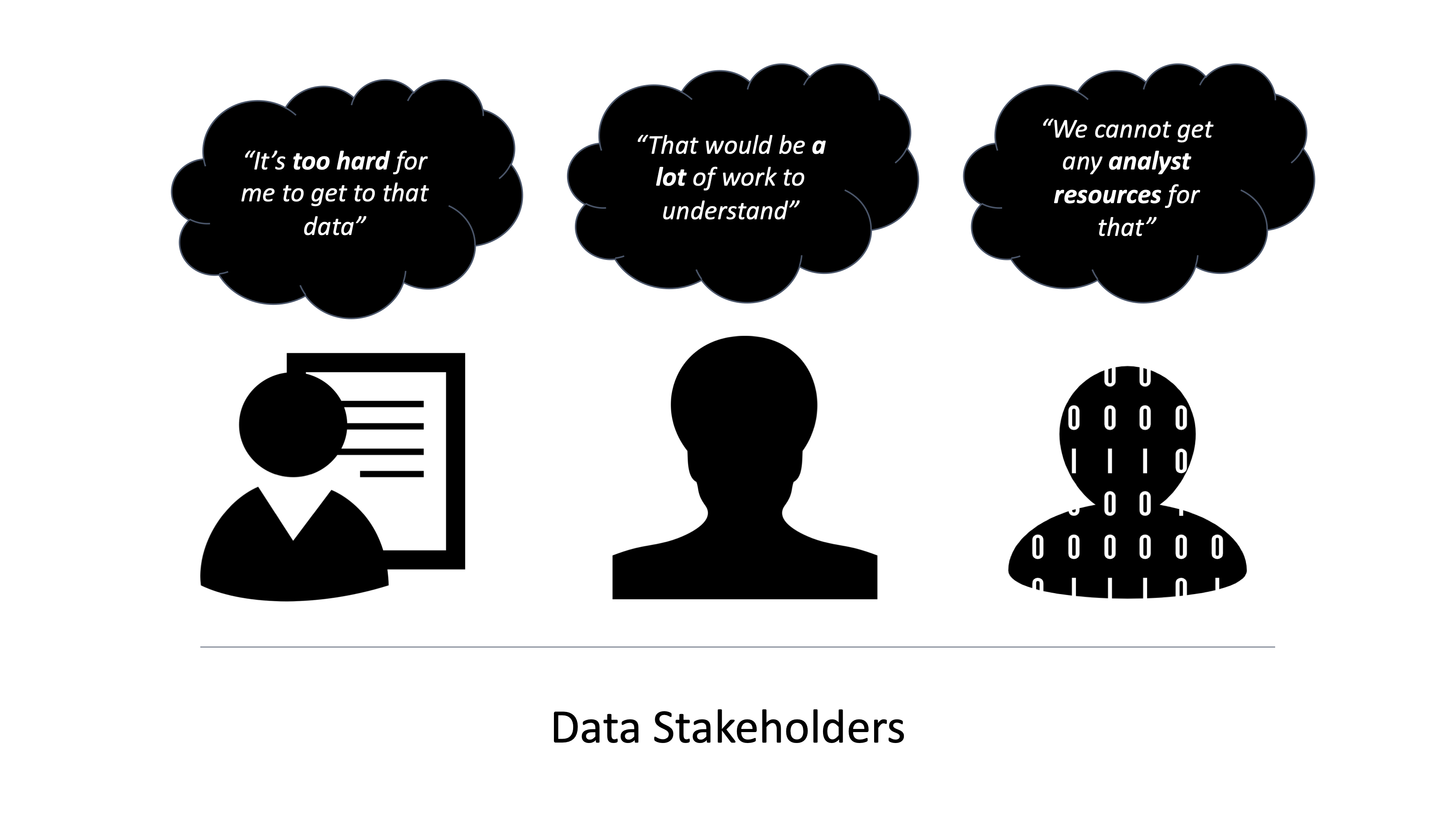
Just about anyone who has worked in a white-collar job these days has heard these complaints. While the rise of data has been well-documented, the added complexity in querying and analyzing may have been under-reported. This results in stakeholders often missing the data they want. They feel they cannot get the data themselves, or it would be too much work, and they cannot get analyst support. There are many drivers of this complexity.
For one, the hundreds of events, coming from different places and needing expertise to stitch together, make SQL query work a job primarily for analysts. Even when product team members like PMs, tech leads, and designers have SQL skills and enjoy querying, their work is usually limited to more basic stitching of data.
In addition, the core responsibilities of non-data folks rarely includes data analysis. That’s not to say other jobs do not involve data; they specifically involve data interpretation and action. When requests cannot be tied to large, immediate business value, those initiatives do not get prioritized. This makes it hard for stakeholders to feel satisfied by their data provided. These types of problems have become pervasive across industries and company types.
Growing in ubiquity to solve these problems
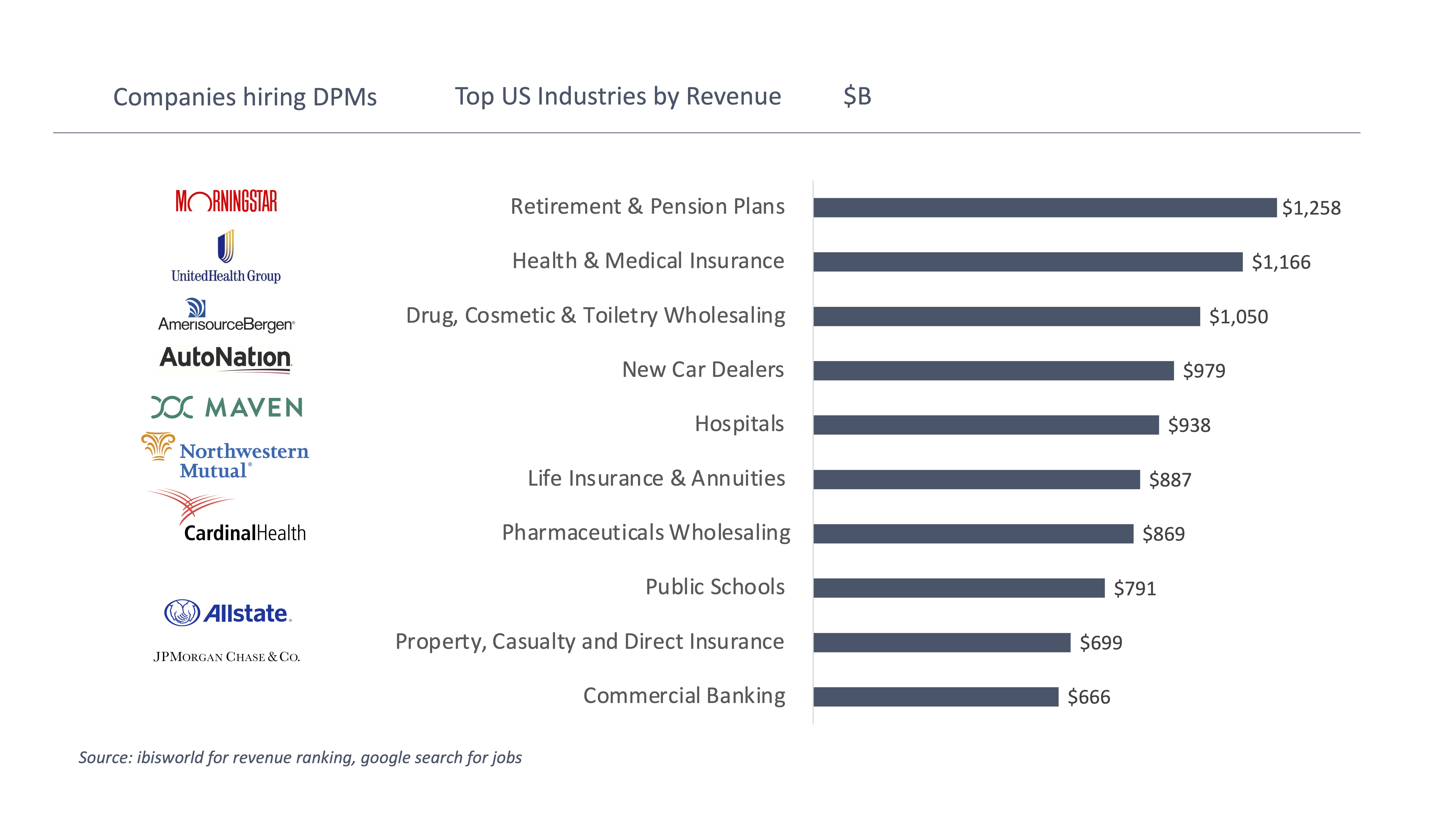
Fast-growing tech companies across the spectrum are snapping up data product managers to help solve some of these problems. This includes notable public tech companies:
- Twilio: 67% YoY revenue growth Q2 21
- Apple: 36% YoY revenue growth Q3 21
- Visa: 27% YoY revenue growth Q3 21
- Tinder: 26% YoY revenue growth Q2 21
- Zalando: 25% YoY revenue growth Q2 21
One of the common refrains when this role is brought up is that “we’re not far enough along for that specialized of a role.” But the role of data product manager is popping up at fast growing technology companies across the startup stage spectrum:
- Klue: Series A, $19M funding
- Explorium: Series C, $125M funding
- Niantic: Series C, $470M funding
- Hopper: Series F, $424M funding
It’s not just fast-growing tech companies that are anointing data product managers. Some of the largest market cap companies across industries are hiring data product managers:
- Insurance: Allstate ($39B market cap)
- Media: WarnerMedia (>$30B revenue)
- Healthcare: Cardinal Health ($15B market cap)
- Automotive: Cox (>$7B revenue)
- Retail: Petco ($6B market cap)
Making data teams more user-centric & ROI focused
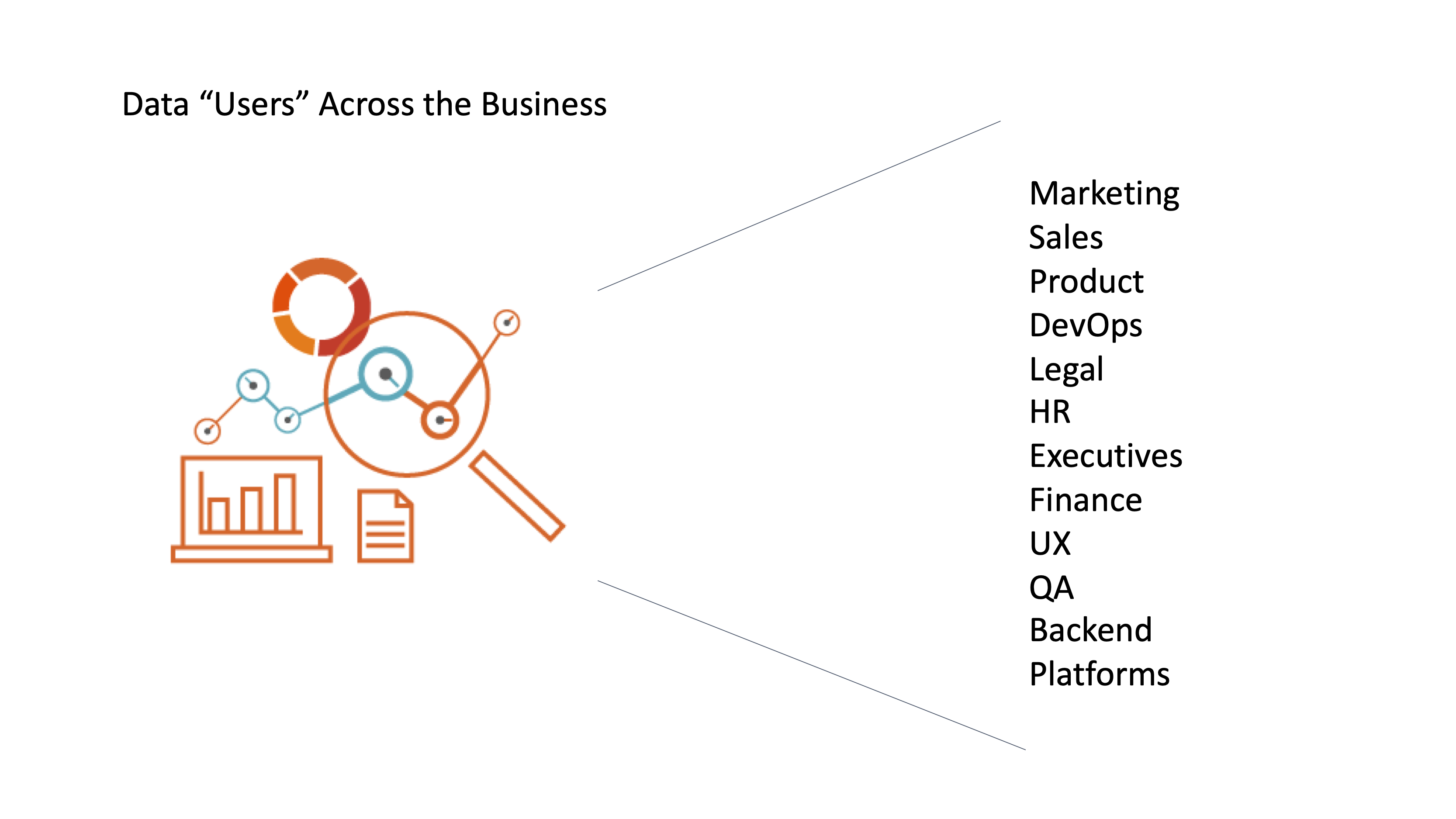
Data teams are product teams. But too often, teams forget this. Data analysts, engineers, and scientists get busy doing their respective jobs. And their leaders get busy leading and mentoring. As a result, user-centricity in a data team can be lost. That’s where data product managers come in.
DPMs serve many roles in helping data teams be more effective. They can help identify common user needs that the data team can prioritize. In addition, they can think about how to productize things to become a platform layer. Finally, data product managers can help drive thinking around the ROI of any particular work stream or data project.
Data product managers can also help create a more data-driven culture. This is especially true within the product management organization. Most product managers are moving towards data-driven product management. A data product manager can be one of the central advocates of the shift to such a central culture, and can spend time to understand what is blocking existing PMs from using data as much as they would like.
Companies that are a fit
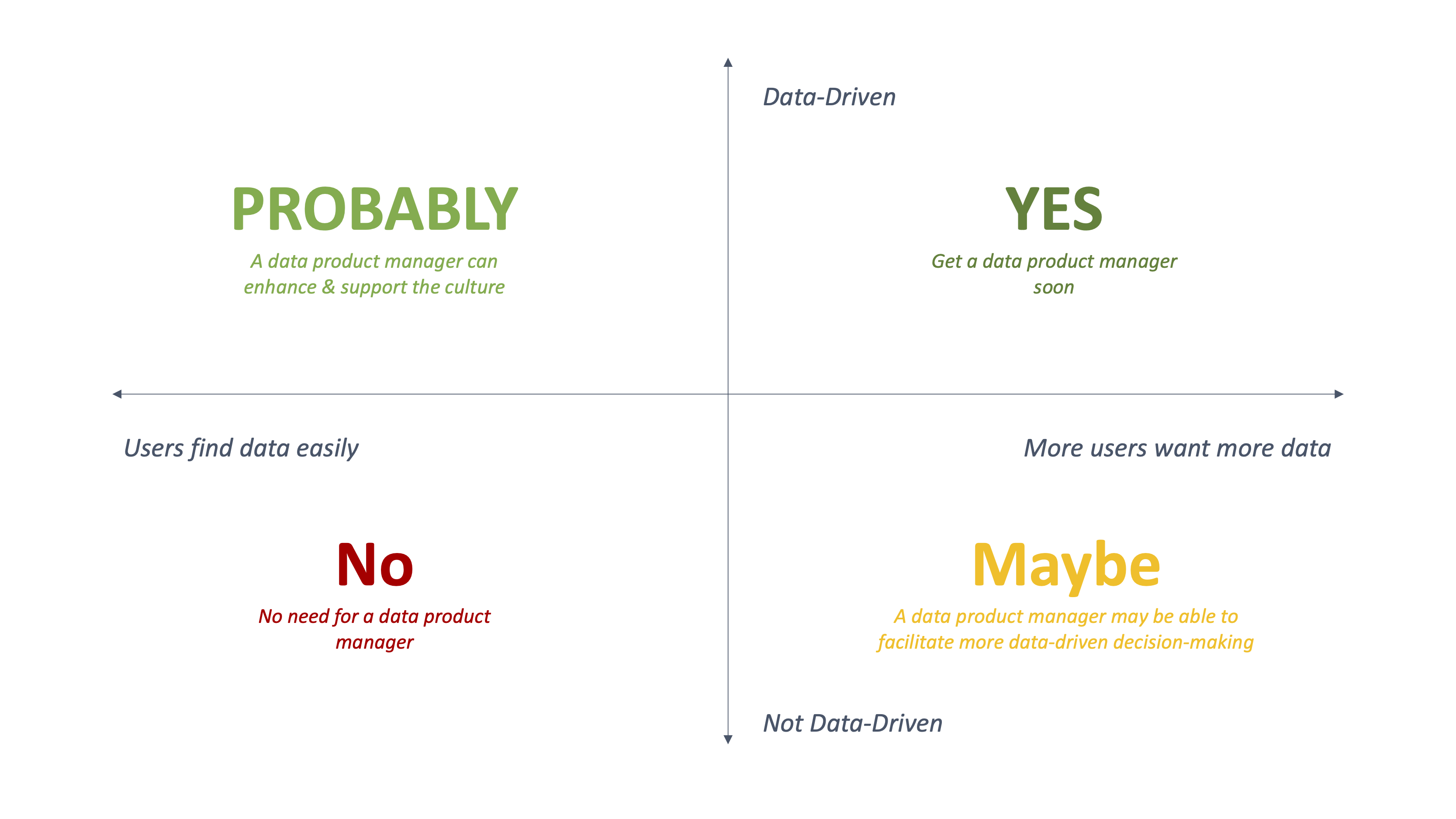
So, should you hire a data product manager? I spoke to 11 data product managers, including 2 one’s I formerly managed. I also consulted the pre-existing product literature and the JDs I linked to above. Based on that information, I have come up with this 2×2 as a way to think about if your company should have a data product manager.
The x-axis is a characterization of your company’s user needs around data. On the left side, users find data easily. On the right side, more users want more data. The y-axis is a dimensionalization of how your company makes decisions. In the bottom half, you have companies who are not data driven. They may look at data, but they make decisions based on other factors. On the top half, think of companies that are data driven.
Data-driven companies are the best candidates for a data product manager. But beyond that, companies where more users want more data are particularly good fits. That means that the analytics team could benefit from better allocation of existing resources to user needs. A data product manager can help with that. Companies where users find data easily probably want a data product manager, but the need is not as acute. The data product manager can probably enhance and support the data-driven culture though.
On the other hand, companies that are not data-driven are lesser fits for a data product manager. Companies where more users want more data are better candidates than those where users can find data easily though. In a company where more people want data, a data product manager may be able to facilitate more data-driven decision-making. In a company where users find data easily however, there is no need for a data product manager.
Environments where a data product manager can fail
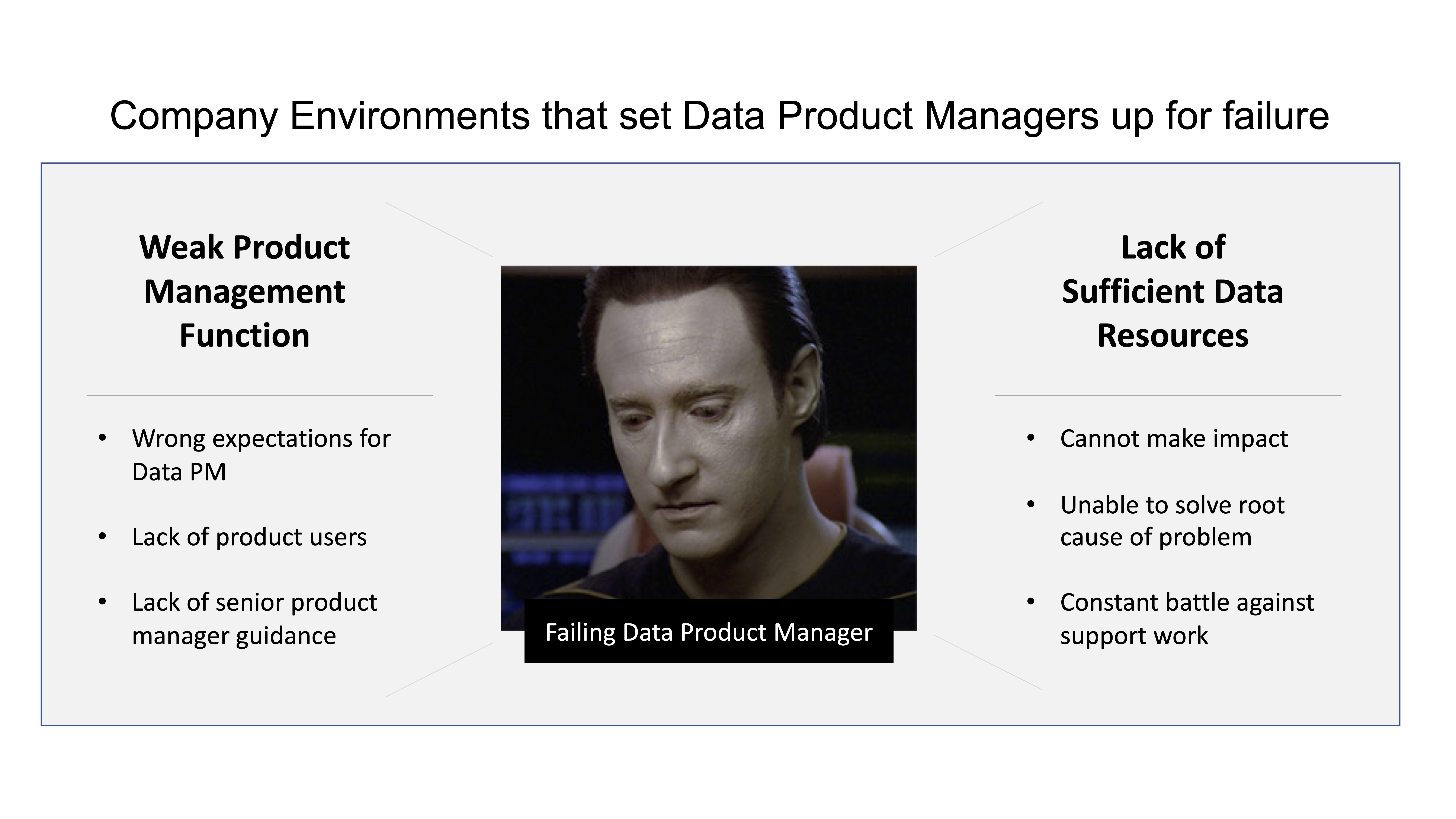
One other lens to think through aside from the basic company fit above is if the data product manager will be set up to succeed in your company. The data product managers I spoke to mentioned many different company environments that can make it harder for someone in that role to succeed. These can be categorized broadly into two groups.
The first major bucket of these companies is those where the expectations for the data product manager do not line up with modern product manager best practices. This most predominantly happens in companies without strong product management functions. If the organization expects the data product manager to plan sprints, define specs for data engineers, and coach analysts, the data product manager is set up to fail. That is more of a data project manager, data operations, or chief of staff to the head of analytics role. Data product managers succeed when they can identify user needs, conduct user discovery, and measure the impact of data products on users.
The second major bucket of companies where data product managers can fail is those where the underlying problem is lack of data resources. Prematurely hiring a data product manager to define summary tables before the team has data engineering resources to dedicate to the batch jobs behind such summary tables, for instance, makes it difficult for the data product manager to work with the data organization to ship products users want. The same can apply to analysts. If the data product manager specs a dashboard the team does not have capacity to build, it goes to waste. The same applies for the different flavors of data product management.
The future of data product management
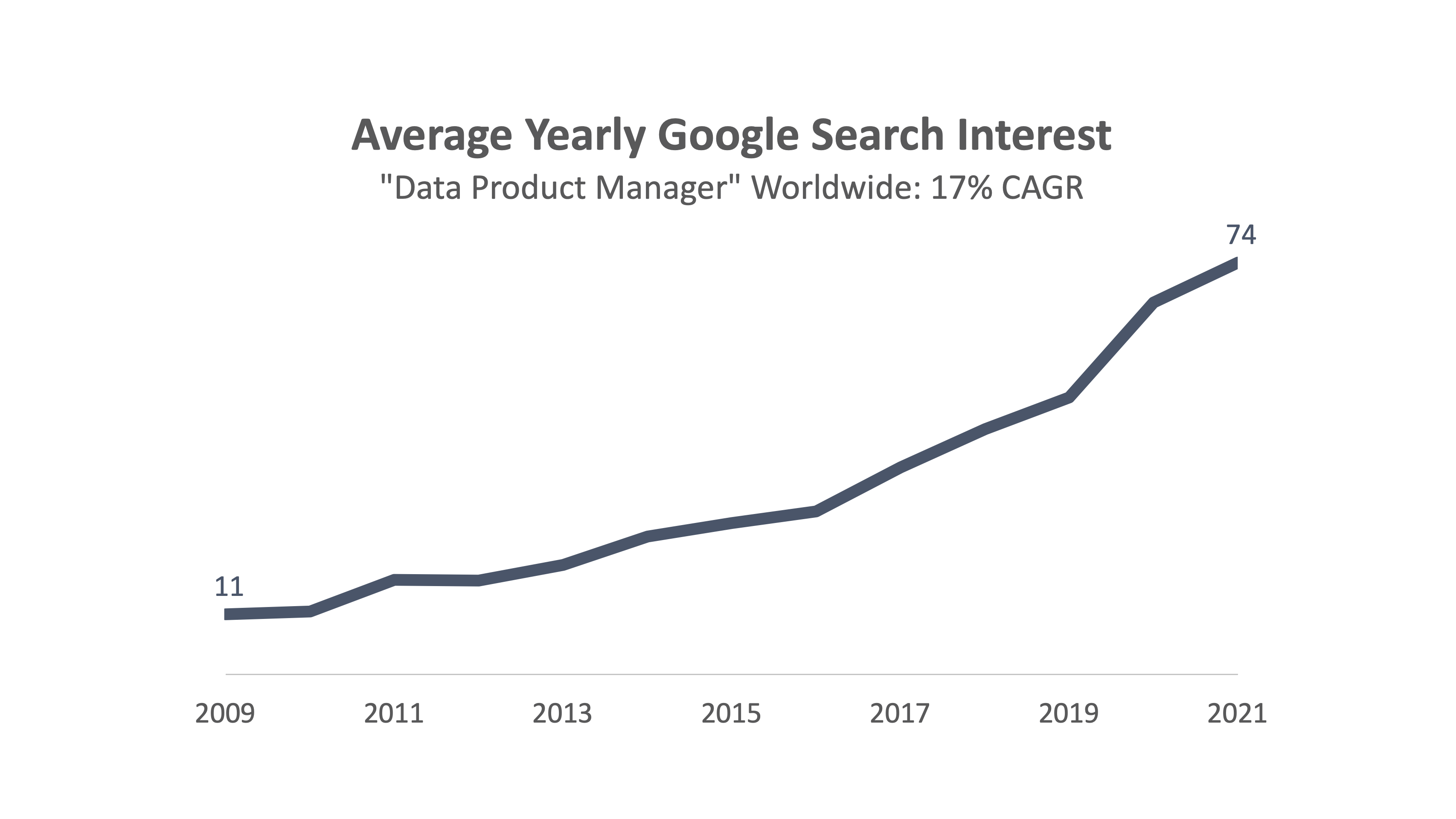
The field of data product management is set to expand at a rapid pace. The sheer complexity of data, the fact that data teams are product teams, and that product teams can benefit from a product manager focusing on user needs, will necessitate the growth of the field. Industry analysts agree. Zippia expects the US to hire an incremental 21,800 data product manager in the coming seven years. Will you be one of those data product managers? Or will you be hiring one of those data product managers?